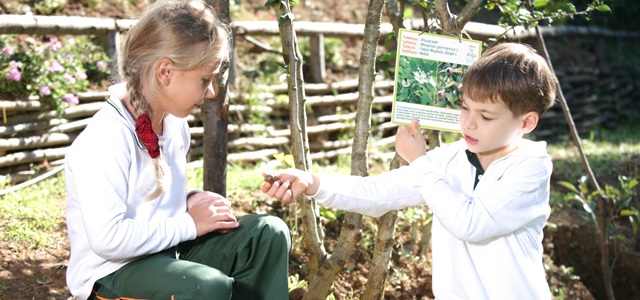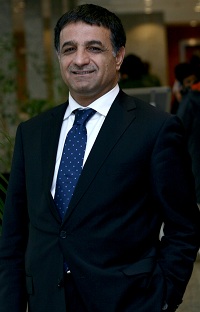The Only School Having Ecology Courses in Türkiye
- Ayrıntılar
- Üst Kategori: ROOT
- Kategori: Ecology News
The Only School Having Ecology Courses in Türkiye

History of Doğa Schools
Founded by Fethi Şimşek, Doğa Schools started its educational journey in 2002 with Beykoz Campus, Doğa Schools currently have 12 campuses from kindergarten to high school and 6 exclusive kindergartens in Istanbul and 12 campuses located throughout Turkey; namely Bursa, Ankara, Denizli, Sakarya, Diyarbakır, Batman, Aydın, Antalya, Sanlıurfa, Malatya, Çorlu and Mersin. The number of students has increased to 15000 since 2002 with 1500 staf.
 The founder of Doğa Schools, Fethi Şimşek, is an experienced teacher with his career of 25 years in education and educational adminisration. One may see his name under a number of successful educational institutions, like Doğa Schools and English Time. Fethi Şimşek emphasizes the fact that rather than the education, the administration systems nowadays experience certain problems however to be able to find a solution the fact of globalization should be analyzed thoroughly. He believes that just like stock exchange, education should be updated every hour!
The founder of Doğa Schools, Fethi Şimşek, is an experienced teacher with his career of 25 years in education and educational adminisration. One may see his name under a number of successful educational institutions, like Doğa Schools and English Time. Fethi Şimşek emphasizes the fact that rather than the education, the administration systems nowadays experience certain problems however to be able to find a solution the fact of globalization should be analyzed thoroughly. He believes that just like stock exchange, education should be updated every hour!
Fethi Şimşek was born in Şanlıurfa, 1958. In 1975, he came to İstanbul for university education where he was a student in İstanbul Atatürk Education Institute Physics-Chemistry-Biology Department. After graduation, he became co-partner of Kültür Private Teaching Institutions. Being partner with Mr. Orhan, they published Kültür Test, a periodical that has been prepared for university entrance exams. New businesses and new success stories followed these successful enterprises. We talked to Fethi Şimşek, the man that breathed a new life to our country’s educational system, on education and on educational administration.
You started to course-business for university exams right after you graduated from the university, right?
I graduated Education Faculty in 1979. And I was a partner of the course in 1984. I worked as an active course teacher. The year 1991 was a crossroad for me because I wasn’t able to keep up with both the teaching and the administration at the same time. I know I should stop doing one of these.
What are the problems of education in Turkey and all around the world?
In the world, there are educational administrative problems rather than educational ones. Educational administration, educational management is an independent branch. Educational administration is not a subject of educational science, but a subject of administration science. We should get use of the up –to- date concepts in this field. In educational administration, we should use the concepts that match with today’s economical system, management system. Administration science shows us how to behave in order to create a value. Such value does not necessarily mean only economical value. Today it is impossible to create any value with the concepts used 10 years ago. Because everything is changing rapidly. The paradigm of this change is mostly globalization. Globalization brings out something new each and every day. Moreover, you can not abstract education from the time, from the economical conditions. 10-15 years ago, we were producing human resources for industrial society. But now we are producing human resources for information society, communication society and for the globalizing world. We can not give education with the paradigms of the past. Education needs to be hourly updated because the world changes every hour.
After you staterd doing business in the private school sector, a competition also started within the sector. What do you think, does such competition becomes keener and such keener that it can harm the sector?
We have a responsibility to develop the private school sector. Actually, this is again a conceptual problem. Our society was against the idea of competition for many years. But without competition, you can not expect any development. We have a concept that provokes the competition, not only between the educational institutions, but also within our institution. But we provoke ‘competition’, not unfair competition! Competition is the desire for the better. It means to raise the standarts to upper levels. In an environment without any competition, you will find only apathy. Nothing else. How will you measure yourself without a competitor? If we put competition into this sector, ultimately the sector gains.
How did you come up with the idea of Doğa? Can you tell us about those days?
We made the first investment for Doğa Schools in 2001. I got very excited when I saw Beykoz Doğa Campus for the first time. Love for nature, love for land and agriculture is a heritage from my childhood. My life in land, in agriculture, in water was interrupted when I came to Istanbul for university in 1975. It all came back to me when I saw Beykoz campus for the very first time and I recalled my memories back in 1975 . I went back to my youth and childhood days. On the following days I brought my partner Mr. Orhan and our managers here. All of them got very excited. But later, when it came to financial stage, some of our friends claimed that this was a heavenly place, it would not turn into an economical value. In fact I can not say that they were mistaken. At that times, several leaders of the sector saw here and all thought here to be a very fantastic place, but not suitable for a school. There was a disagreement in our team for investment. Hence, I took the initiative and said, “You have a boss working for you for 20 years. What do most of the bosses do? They found a farm for themselves. They build country houses which cost for million dollars. Tell people that Fethi Şimşek built a farm, a country house , but he does not want to use it personally. He wants to share his farm with the society and with the children. People should see this place as a farm rather than a school. If one day, this farm happens to be a school, it is great. If it can not, I take the full responsibility.”
Doğa now turned into a big brand. Who named after the school? Was it you?
No, the copyright of this name completely belongs to our students. The first year, when we took over this place, we started education with 120 students. We made a poll within those students and we asked them “What shall be the name of this school?” 90 percent of our students chose the name “Doğa”. We instantly adopted the name.










